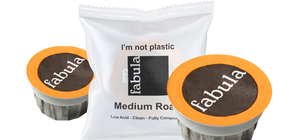In the bustling world we live in, many of us rely on a cup of coffee to kickstart our day! Beyond its invigorating aroma and rich taste, coffee has long been associated with various health benefits, including coffee's secret mission to supercharge your brain. In our blog today, we'll explore coffee's fascinating relationship with cognitive function, as well as the neuroprotective effects it may offer.
Cognitive function refers to our mental abilities and processes. It includes how we think, learn, remember, pay attention, solve problems, and make decisions. It's basically how our brain works to process information and carry out various mental tasks.
As we age, these functions may naturally decline, leading to concerns about cognitive disorders such as dementia and Alzheimer's disease. It is said that coffee has emerged as a subject of interest to maintain and enhance cognitive functions.

The Role of Coffee Compounds:
Coffee is a complex beverage comprising numerous compounds. Caffeine, the most well-known component, acts as a stimulant that helps to increase alertness and improve focus. It achieves this by blocking adenosine receptors in the brain, which promotes the release of neurotransmitters like dopamine and norepinephrine.
Neuroprotective Effects:
Beyond its acute cognitive effects, coffee has shown promise in providing long-term benefits for brain health. Studies suggest that the bioactive compounds present in coffee may have neuroprotective properties, helping to reduce the risk of neurodegenerative diseases. For example, research has indicated that regular coffee consumption may be associated with a lower risk of developing Alzheimer's and Parkinson's diseases.

Enhanced Cognitive Performance:
In addition to its potential protective effects, coffee has been linked to improved cognitive performance in various domains. It has been observed to enhance attention, concentration, and reaction time, leading to increased productivity and mental sharpness. However, it's important to note that the extent of these cognitive benefits may vary among individuals, influenced by factors such as genetics and caffeine tolerance.
Considerations and Moderation:
While the research surrounding coffee and brain health is promising, it's crucial to approach consumption with moderation. Excessive caffeine intake can lead to side effects such as jitteriness, anxiety, and disrupted sleep patterns. Additionally, individual sensitivities and existing health conditions should be taken into account. Consulting a healthcare professional can provide personalized guidance based on your specific circumstances.

Key Takeaways:
As a beloved beverage worldwide, coffee offers more than just an energy boost. The relationship between coffee and brain health is an intriguing area of research, suggesting that coffee consumption may have cognitive benefits and potentially protect against neurodegenerative diseases. However, it's essential to maintain a balanced and mindful approach to coffee consumption, ensuring moderation and considering individual factors. The next time you savor your morning cup of joe, know that it may provide more than just a delightful taste—it could be contributing to your brain's well-being!
Try our healthy, low-acid, organic coffee here to supercharge your brain!





